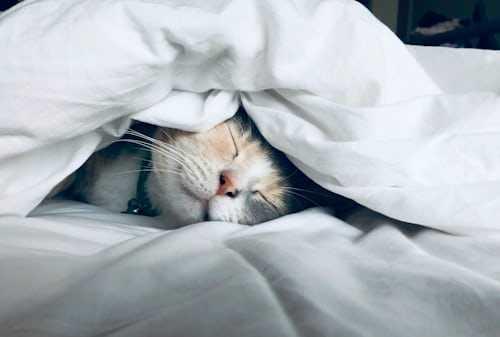Why Sleep Deprivation Kills
Curated from: quantamagazine.org
Ideas, facts & insights covering these topics:
4 ideas
·1.82K reads
7
Explore the World's Best Ideas
Join today and uncover 100+ curated journeys from 50+ topics. Unlock access to our mobile app with extensive features.
Consequences Of Too Little Sleep
It is common knowledge that we need to sleep to be our best. And constant sleep loss has serious effects, including death.
Sleep is a neurological activity, and still, sleep-deprived creatures suffer serious malfunction in other parts of the body, outside the nervous system. Chronic sleep deprivation can result in heart disease, high blood pressure, obesity and diabetes.
109
570 reads
No Sleep = No Restoration
Sleep, according to deep research on flies, has a function of reversing the ancient biochemical process of oxidation. Without sleep, there is no restoration possible.
Sleep studies prove it is worse than starvation, as early studies (19th century) conducted on puppies showed that they died in about five days if deprived of sleep and kept in motion.
102
509 reads
Reactive Oxygen Species
... or ROS is a molecule that builds up in the intestines of animals that are denied sleep.
Studies conducted on fruit flies and mice showed rising levels of ROS when kept in sleep deprivation.
Antioxidants, when given to sleep-deprived flies, made them healthy and active again, proving that the artificial restoration is possible.
79
301 reads
The Body Is One
Researchers have found that sleep deprivation is not just about the mind, or the nervous system, but affects our gut, blood composition and other parts of the body which seem unrelated to sleep.
92
443 reads
IDEAS CURATED BY
Everly 's ideas are part of this journey:
Learn more about health with this collection
How to practice effectively
The importance of consistency
How to immerse yourself in the language
Related collections
Similar ideas
Read & Learn
20x Faster
without
deepstash
with
deepstash
with
deepstash
Personalized microlearning
—
100+ Learning Journeys
—
Access to 200,000+ ideas
—
Access to the mobile app
—
Unlimited idea saving
—
—
Unlimited history
—
—
Unlimited listening to ideas
—
—
Downloading & offline access
—
—
Supercharge your mind with one idea per day
Enter your email and spend 1 minute every day to learn something new.
I agree to receive email updates

